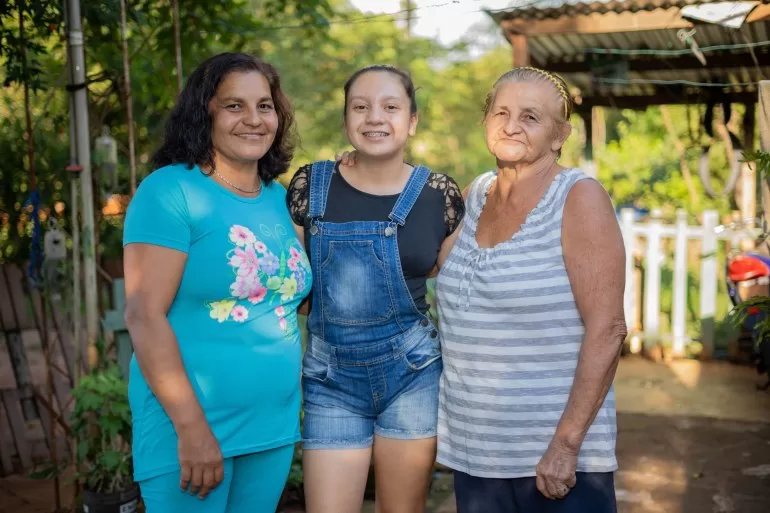The three women sit together beneath a tree in their village in west-central Burkina Faso, engaged in forming balls of seeds to make a condiment called soumbala. “The girl’s mother would give her a sheepskin to sleep on until the bleeding stopped,” confides Marie. “At that time, girls and women were isolated during their periods. They washed their sheepskin and protective cloths every day, which is why in the Moore language, we use the word ‘washing’ to refer to the time of menstruation.”
In Paraguay, 73-year-old grandmother Maria also shared her experience of periods with her daughter, Ester, 51, and 16-year-old granddaughter Alma, Ester’s niece. “We didn’t use to talk about it,” Maria says. “We, in secret, had to deal with it and there were no sanitary pads or anything. You had to use cloths, wash and iron them.”
![[Photo: Plan International]](https://www.aljazeera.com/wp-content/uploads/2024/05/PlanInternationalPy-125-1716301827.jpg?w=770)
On any given day, in all corners of the world, about 300 million women and girls are having their periods, according to a report by a collection of non-governmental organisations (NGOs) advocating for investment in menstrual health [PDF]. At the same time, one in four lack access to menstrual health products or clean toilets reserved for girls, according to a report by the social change non-profit advisory group, FSG.
Some are forced to use materials such as old newspapers, rags, earth, sand, ash, grass or leaves to manage their periods – like grandmother Bui Non in Cambodia, who, as a young girl, used pieces of a sarong as makeshift sanitary towels. “I cut the fabric into pieces,” Bui Non, 57, says. “After a week, I buried or burnt those fabrics.”
Taboos, stigma and myths from long ago still abound in many rural communities around the world, with a culture of silence and shame often surrounding the issue of menstruation. Beninese grandmother Angel remembers how women in her day were not allowed to cook over a fire or serve food to their fathers if they were menstruating.
For Inna, a Togolese grandmother, things were even more challenging. “The family had to find a room on the roadside where the menstruating girl had to spend her entire period. Then, the family alerted the whole village.” Still, in many communities, girls are excluded from everyday life and opportunities, especially school, when they are on their period.
Nowadays, when girls are able to manage and talk about their periods, it is often down to longstanding community health projects working with girls and boys, women and men to encourage intergenerational dialogue to break down taboos and barriers about menstrual health. “It’s a matter of rights,” says Inna’s 16-year-old granddaughter, Denise, who – like all the teenagers in this article – participates in such a community project run by Plan International, a humanitarian organisation working to advance children’s rights and equality for girls in 80 countries around the world.
“Before, no head of the family would allow a discussion session like the one we’re having today about menstruation in his family,” agrees Aminata in Burkina Faso. “The change nowadays is clear.”
